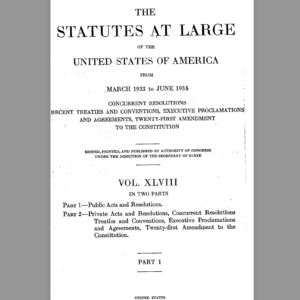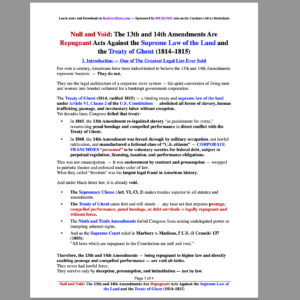Black’s Law Dictionary 1st Edition, pages 1086-1087:
SET-OFF. A counter-claim or cross-demand; a claim or demand which the defendant in an action sets off against the claim of the plaintiff, as being his due, whereby he way extinguish the plaintiff’s demand, either in whole or in part. according to the amount of the set-off.
Set-off is a defense which goes not to the justice of the plaintiff’s demand, but sets up a demand against the plaintiff to counterbalance his in whole or in part. Code Ga. 1882, § 2899.
For the distinction between set-off and recoupment, see RECOUPMENT.
“Set-off” differs from a. “lien, ” inasmuch as the former belongs exclusively to the remedy and is merely a right to insist, if the party think proper to do so, when sued by his creditor on a counter-demand, which can only be enforced through the medium of judicial proceedings; while the latter is , in effect, a substitute for a suit. 2 Op. Attys. Gen. 677
Black’s Law Dictionary 2nd Edition, page 1079:
SET-OFF. A counter-claim or cross-demand ; . a claim or demand which the defend ant in an action sets off against the claim of the plaintiff, as being his. due, whereby he may extinguish the plaintiff’s demand, either in whole or in part, according to the amount of the set-off. See In re Globe Ins. Co., 2 Edw. Ch. (N. Y.) 627; Sherman v. Hale, 76 Iowa. 383, 41 N. W. 48 ; Naylor v. Smith, 63 N. J Law, 596, 44 At!. 649 ; Hurdle v. Hanner. 50 N. C. 360; Wills v. Brownini, 96 Ind. 149.
Set-off is a defense which goes not to the justice of the plaintiff’s demand, but sets up a demand against the plaintiff to counter-balance his in whole or part. Code G. 1882, § 2899.
For the distinction between set-off and recoupment, see RECOUPMENT.
“Set-off” differs from a. “lien, ” inasmuch as the former belongs exclusively to the remedy and is merely a right to insist, if the party think proper to do so, when sued by his creditor on a counter-demand, which can only be enforced through the medium of judicial proceedings; while the latter is , in effect, a substitute for a suit. 2 Op. Attys. Gen. 677
Black’s Law Dictionary 3rd Edition, page 1612:
SET-OFF. A counter-claim o.r cross-demand ; a claim or demand which the defend ant in an action sets off against the claim of the plaintiff, as being his due, whereby he may extinguish the plaintiff’s demand, either in whole 0’1′ in part, according to’ the amOunt of the set-off. See In re Globe Ins. CQ., 2 Edw. Ch. (N. Y.) 627; Sherman v. Hale, 76 Iowa, 383, 41 N. W. 48; Naylor v. Smith, 63 N. J. Law, 596, 44 A. 649; Hurdle v. Hanner, 50 N. C. 360; Wills v. BrOwning, 96 Ind. 149 ; Imperial Elevator Co. v. Hartford Accident & Indemnity Co., 163 Minn. 481, 204 N. W. 531, 532, 42 A. L. R. 559 ; Southern Telephone Co. v. Banks, 108 Ark. 283, 158 S. W. 158, 160 ; First Nat. Bank v. Thompson, 41 Okl. 88, 137 P. 668, 670 ; Monongahela Tie & Lumber Co. v. Flannigan, 77 W. Va. 162″ 87 S. E. 161, 162 ; King v. Davis, 190 N. C. 737, 130 S. E. 707, 710 ; Drovers’ State Bank v. Elliott, 97 Kan. 64, 154 P. 255, 256 ; Ruby V. Baker, l00 Kan. 855, 190 P. 6, 7, 10 A. L. R. 1247 ; Maek v. Hugger Bros. Const. Co., 153 Tenn. 260, 283 S. W. 448, 449, 46 A. L. R. 389 ; · Merry Realty Co. v. ShamQkin & Hollis Real Estate Co., 186 App. Div. 538, 174 N. Y. S. 627, 630 ; Luther v. Mathis, 2.11 Ill. App. 5910, 601 ; Emerson-Brantingham CO’. v. Brennan, 35 N. D. 94, 159 N. W. 710, 713; Marconi Wireless Telegraph Co. of America V. National Electric Signaling Co. (D. C.) 206 F. 295, 200; Terry Steam Turbine Co. v. B. F. Sturtevant Co. (D. C.) 204 F. 103, 104 ; Dameron v. Carpenter, 190 N. C. 595, 130 S. E. 328, 329; Dexter-Portland Cement CO’. v. Acme Supply Co., 147 Va. 758, 133 S. E. 788, 790; Stern v. Sunset Road Oil Co., 47 Cal. App. 334, 190 P. 651, 655 ; Smith v. Hurt (Mo. App.) 203 S. W. 625 ; National Bank of Suffolk v. Winslow, 100 N. C. 470, 137 S. E. 320, 322; Wollan v. McKay, 24 Idaho, 691, 135 P.. 832, 837.
Set-off is a defense which goes not to the justice of the plaintiff’s demand, but sets up a demand against the plaintiff to counter balance his in whole or -in part. Code Ga. 1882, §’2899 (Civ. Code 1910, § 4339).
For the distinction between set-off and recoupment, see Recoupment.’
“Set-off” differs from a “lien,” inasmuch as the former belongs exclusively to the remedy, and is merely a right to insist, if the party think proper to do so, when sued by his creditor on a counter demand, which can only be enforced through the medium of judicial proceedings ; while the latter is, in effect, a substitute for a suit. 2 Op. Attys. Gen. 677.












Recent Comments